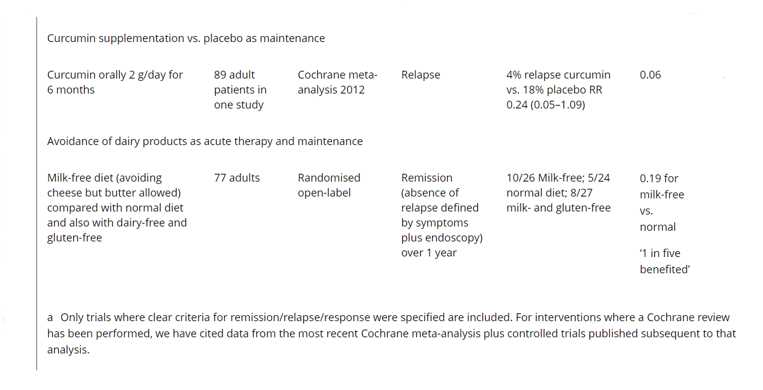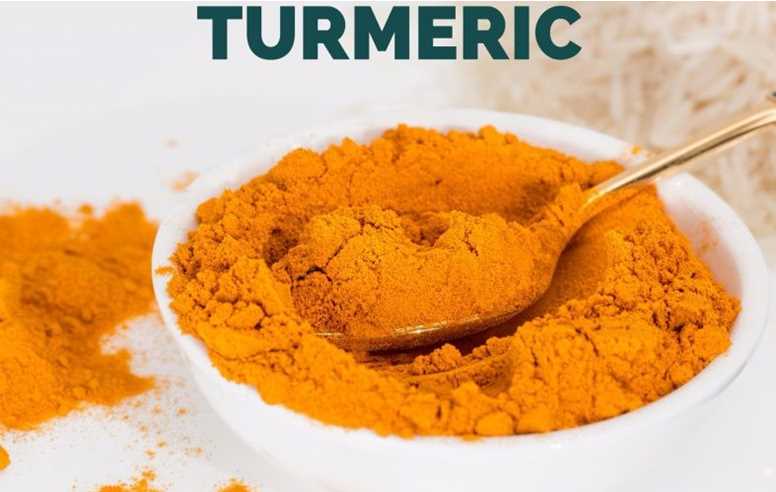Ulcerative colitis is a disease of the digestive system. Ulcerative colitis is limited to the large intestine (colon and rectum) and is characterized by inflammation that occurs in the innermost lining of the intestine. Ulcers may form on the lining of the stomach and the disease can also affect the eyes, skin, and joints. Ulcerative colitis falls under the category of Inflammatory Bowel Disease or IBD and should not be confused with Inflammatory Bowel Syndrome (IBS) which is not an inflammatory condition. Living with this disease can affect the quality of life for those who suffer from it, but there are natural ways to assist in the healing of the gut. Today I’d like to make you aware of the natural food called turmeric for ulcerative colitis healing.
What is Turmeric?
Turmeric is a spice and one of the main components of curry powder. It was first isolated nearly two centuries ago in 1815 by two German scientists. Its biological activity wasn’t studied until 1949 in Nature for its antibacterial properties and the first clinical trial was published in The Lancet in 1937. The active ingredient in turmeric is curcumin. In India, turmeric is used to treat health conditions due to its anti-inflammatory quality.
Compelling evidence has shown that curcumin in turmeric has the ability to inhibit inflammation in various diseases all while being safe and non-toxic. The use of medicinal plants and spices, like turmeric, have become an increasingly attractive approach for ulcerative colitis for those patients that do not respond to drugs or who do not want to take heavy-duty drugs that have undesirable side effects. You may also love reading; Do Tomatoes Cause Inflammation of the Stomach? Amazing Facts Revealed! 2022
Study of Curcumin Vs Placebo for Ulcerative Colitis and Relapse Rate

Recent Studies of Turmeric and Ulcerative Colitis
- Curcumin in turmeric scavenges free radicals and nitric oxide. Free radicals are unstable molecules that wreak havoc on healthy cells. Nitric oxide is good to the body in small amounts but is a danger when levels are high. Ulcerative colitis patients have high inflammation and high nitric oxide levels (Sreejayan & Rao, 1997).
- Mice treated with curcumin in turmeric decreased the severity of large intestine damage. These changes resulted in a decrease in the weight of the colon and spleen that were treated with 50, 100 or 300 mg of curcumin, according to a study published in the British Journal of Pharmacology.
- Curcumin in turmeric was superior to placebo in maintaining remission in patients with ulcerative colitis. A randomized, double-blind, Japanese study determined the relapse rate for those patients taking curcumin was significantly lower than the placebo group.
- A placebo-controlled maintenance trial of curcumin 2 g/day for 6 months showed a trend towards a reduced relapse rate (4% vs. 18%, RR 0.24, P = 0.06) and a significantly reduced endoscopic score.
Should you take Turmeric or Curcumin?
The technical difference between the two is that turmeric is the yellowish powder used to flavor foods, while curcumin is the nutrient found in turmeric.
Most clinical studies use turmeric extract. The powdered spice turmeric has fewer “curcuminoid” compounds (curcumin) by weight than turmeric extract — which are believed to be important to turmeric’s effects. In turmeric extracts, the concentration of curcumin is very high, almost 95% and is why turmeric extract is used in studies.
According to ConsumerLab, turmeric extracts are less likely to be contaminated with heavy metals such as lead. If that’s not enough, turmeric powders can contain filth such as insect parts. Always check on the purity of the brand of turmeric powder you use.
So if you think sprinkling a little bit of turmeric spice on your food once a day will get you the same results as in the studies that would be a stretch.
My recommendation would be to stick to turmeric extracts when suffering from ulcerative colitis and use turmeric powder as a spice in cooking. You may also read about the best herbs for gut health that promote healthy gut bacteria and limits the growth of bad bacteria.
***TIP ***
Turmeric and curcumin are not easily absorbed by the body. Black pepper or piperine ( a substance in black pepper responsible for its pungency) should be added to your turmeric powder or should come standard in your turmeric extract supplement.
Be patient when taking turmeric supplements as the full benefit may not be felt for 60 days.
Turmeric precautions
- If you suffer from liver disease it’s best to not take turmeric at all, but check with your healthcare practitioner.
- Rarely, if turmeric is taken daily over a prolonged period of time, some mild stomach upset may occur.
- If you are a diabetic, be aware that turmeric may reduce blood sugar levels. A good thing, but you need to be aware of this.
- If you are pregnant, avoid turmeric as there is a possibility of uterine stimulation.
- If nursing, talk to your doctor.
- Stop using turmeric two weeks before surgery as it can cause excessive bleeding.
- Do not take turmeric if you have gallstones and check with your healthcare practitioner.
- Young children should not take turmeric.
Final word
Turmeric powder is a spice that has been used for centuries for it’s healing and anti-inflammatory properties. Turmeric’s main component is curcumin and curcumin have been studied for its ability to reduce inflammation for many health conditions including ulcerative colitis. In fact, studies show the remission times are longer for those suffering from ulcerative colitis who take turmeric extract.




